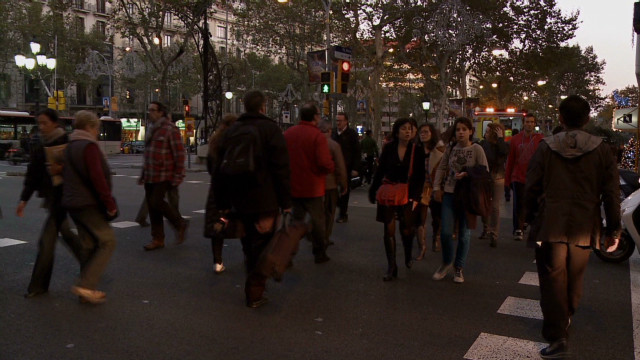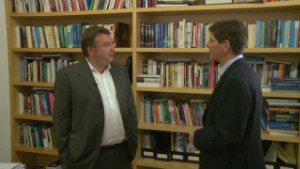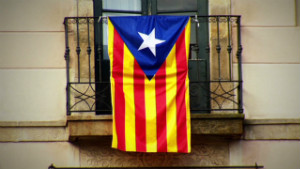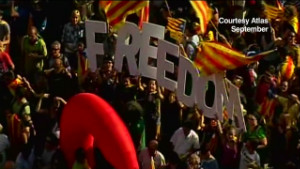
Who's to blame: Catalonia or Madrid?
- Voters will choose a new president and parliament
- If re-elected, the president has vowed to hold a referendum on self-determination
- More than a million Catalans demonstrated for independence in September
- Catalans complain of cultural repression and economic sleights dating to centuries
Madrid (CNN) -- The northeast Spanish region of Catalonia is voting for president and a regional parliament Sunday in elections considered a barometer of rising independence sentiment.
Independence is not on the ballot Sunday, but the incumbent Catalan president, Artur Mas, is expected to be re-elected and has vowed to hold a referendum on self-determination in his next term.
The Spanish government in Madrid vows to block any referendum, arguing that the constitution does not permit a region alone to decide its independence.

 Spain's internal debate over bailout
Spain's internal debate over bailout 
 The business of independence
The business of independence 
 Should Catalonia seek independence?
Should Catalonia seek independence? The elections come amidst a debt crisis and economic stagnation in much of the eurozone, especially Spain, and in its 17 regions, including Catalonia, which is the most important region economically.
Last September 11, an estimated 1.5 million people -- 20% of Catalonia's population -- filled the streets of Barcelona, the Catalan capital and Spain's second largest-city, demanding independence.
Soon after, President Mas called snap regional elections, two years early. His government already has enacted deep spending cuts trying to balance the regional books and has asked Madrid for $6 billion in emergency credit to pay its bills.
"The crisis has made many people in Catalonia desperate," said Gonzalo Bernardos, a University of Barcelona economist. "They see a dark future. Then hope springs, that with Catalan independence, things will be better."
Catalonia has its own flag and language, and various analysts say the economic crisis has brought long-simmering nationalist sentiment to the forefront.
Catalans complain of cultural repression and economic sleights by Madrid dating back centuries.
With just 16% of Spain's population, Catalonia produces 19% of the nation's wealth.
Catalonia argues that it sends far more in taxes to Madrid than it gets back in central government spending, and that Catalan taxes help support poorer Spanish regions.
The regions administer key public services such as health and education, and in Catalonia's case, also the police and prisons.
Polling places are open from 9 a.m. to 8 p.m. Sunday (3 a.m. to 2 p.m. ET Sunday).
All major opinion surveys predict Mas will again win the most seats in the 135-seat Catalan parliament, but most predict his center-right Convergence and Union coalition will again fall short of a 68-seat majority.
So three other major parties are being closely watched as potential power brokers. They include the Catalan branches of Spain's ruling conservative Popular Party -- which opposes independence -- and the main opposition Spanish Socialist Party, which urges a federalist system for the regions.
The other party is the Catalan Republican Left, which advocates independence, like Mas's more conservative party.
A survey earlier this month by the Catalan government's polling center showed 57% of Catalans would vote for independence, a 6% increase from last June and a 14% increase from a year and a half ago.
european medical travel conference school rumble online episodes trafalgar asset
No comments:
Post a Comment